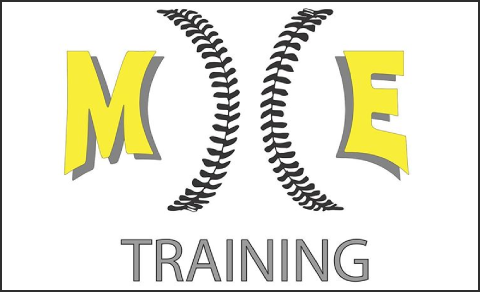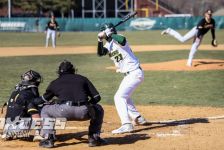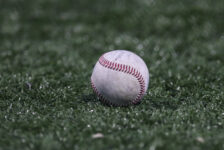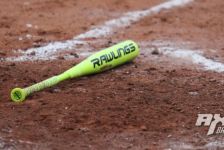by Brendan Duffy, RPSGT, RST, CCSH
They call it “the grind.” Long bus rides, late night fast food, hotels of bad and mediocre quality, roommates who snore louder than any hometown home run crowd noise, and living conditions that can be anything from air mattresses, to stolen motel pillows or even dog beds on a bus floor. Much has been made of the need for proper and clean sleep in order to perform at the major league level, yet little is being done for those players in the minor leagues who are hoping to make it to “the show.” This became apparent to me when a Minor League Baseball general manager reached out to me and said that much is being done for major league players now with regard to “teaching sleep,” but nothing is being done for the many minor league players and the coaches at that level. He wanted a few tips that might ease the burden for his 200 players and many coaches in his minor league system. I had the good fortune and opportunity to touch base with two former minor leaguers to pick their brains as to what they experienced as far as sleep obstacles during their minor league playing days and nights. Nick Lockwood was a multiple position infielder in the Minnesota Twins organization, while Drew Milligan was a 6-foot-6 pitcher drafted by the
Kansas City Royals in 2015. Both related similar themes of long bus rides and inconsistent schedules that made it hard to get the required recovery sleep needed to excel, much less compete, at their potential.
While getting drafted by a Major League Baseball team is a dream come true, the reality is that, for many, it is the beginning of a battle to perform under very stressful and sleep-deprived conditions. The idea of actually getting nine hours of sleep, as many elite athletes require, is the new dream for many newly minted aspiring major league prospects. This can be even more of an obstacle for those players who are drafted straight out of high school and have never scheduled their downtime away from home for themselves. This was the case for infielder Lockwood, a ninth round draft pick of the Minnesota Twins.
Lockwood related that as the demands for sleep increased due to the more intense schedule of a professional as compared with high school baseball, the temptations and new latitude to make your own schedule also reaped havoc for a while. “Sleep changed drastically,” says Lockwood. “I needed more sleep to perform. But this was also my first long-term venture away from home, so later nights did start to happen.” Former pitcher Milligan relates that “Sleep in the minors is very inconsistent, to say the least. In high school, it’s easy to stick to a routine.” For players who may not speak English, there is the potential for a slew of other added stress, such as not being able to (or being reluctant to) speak up about their sleep issues. And if players have families of their own, that is yet another stress on them that could impact sleep. In what ways does lack of sleep impact these elite athletes? Can it derail their opportunities to make it to the major leagues? Sleep is important for many reasons, and especially for athletes who are performing at the
elite level. It plays a big part in reaction time and mood as well as perception of pain and fatigue. These are certainly areas that a minor league player would want to pay attention to. Add to that the impact of sleep as a major part of recovery and you wonder why no one has ever worked with minor league teams to offer some instructions to these highly regarded prospects. A study done back in 2012 from Vanderbilt University indicated the long season and the fatigue that overtakes the MLB teams is responsible for hitters becoming less disciplined and swinging at more bad pitches. Another study by Dr. Christopher Winter in 2010 suggested that a pitcher’s chronotype, whether they are a night owl or a lark, might impact their performance based on what time the game is played. Other studies have suggested that how tired a player is during the day could predict how long they would last in the major leagues, with those players reporting excessive sleepiness during the day being more apt to be released sooner than those who are less sleepy.
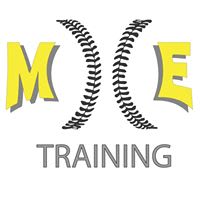
When I asked Lockwood if anyone ever came to speak about sleep during his four years in the minors, he replied “Never.” I then asked if he felt there would be value in bringing in a sleep educator as they do
in the MLB now to educate the players and help them understand the edge sleep can give them, and Lockwood replied enthusiastically, “Yes, very much so. They bring in breathing experts, financial experts, so why not sleep experts? I would want to talk to them about what creates good and bad sleep habit — habits to form early on to make sure you get into a sleep routine and how to sleep on the road would be huge.” Milligan adds, “Of course it would be beneficial. I think some insight for the guys on pros and cons of sleep aids would help, too. I would want to learn the negatives of inconsistentency… the nights of four hours of sleep to the next day sleeping 13 hours.” While the above concerns are perhaps addressed with sleep education, there also are cases such as Josh James of the Houston Astros. James was drafted in the 34th round of the 2014 draft and quickly gained a reputation for his loud snoring. This negatively impacted his fatigue level (not to mention that of his unlucky roommates), his performance and his ability to manage his weight. Luckily, he listened to a teammate and got a much needed sleep study. He was diagnosed with sleep apnea and treated with CPAP therapy, which allowed him to sleep without gasping, snoring and tossing
in bed during the night. The change in his performance was amazing. Once he was getting better sleep, his fastball speed improved to over 100 mph from his previous norm of between 89 and 93. He had 133 strikeouts over 92 innings with the AAA Fresno Grizzlies. He had more energy on the field. He got called up to the Houston Astros at the end of the season and had a memorable debut, going five innings against the Los Angeles Angels with nine strikeouts. And a big part of this was almost accidental, only made possible because a roommate just happened to advise him to go get his sleep reviewed. Because of this newly found vast improvement in energy, James now found himself in the middle of the World Series chase as a valuable piece of the Houston Astros post-season roster this year. There are other sleep and performance disruptors for players and roommates alike that are making headlines these days, late night video games being one. It has gotten to the point that scouts are cautious about drafting players who play the current craze game Fortnite, and some teams are looking to place restrictions on the excessive playing of these sleep-stealer games. And that isn’t even touching the concern that some people had when avid Fortnite MLB player David Price missed a start due to carpal tunnel syndrome. It used to be late nights out that were of concern to coaches, but now it appears that late nights in the hotel room playing on electronic devices is also getting their attention and concern. So, what can players do to better manage the grind of the minor league lifestyle? Let’s look into a few areas where some gains can be made with some simple adjustments, education and discipline.

Education
First of all, it would benefit the players and the coaches to have certified sleep educators or sleep physicians talk about sleep with their team every year prior to the season. This would allow players to start fresh and get the education about how sleep can be the difference maker of getting to the next level. The players need to understand how sleep impacts performance, injury, immune system, recovery, and reaction time as well as mood and anxiety. Even perception of pain and endurance is reduced when you are sleep deprived. They also don’t understand how sleep directly impacts weight and muscle gain and testosterone and growth hormone levels. They don’t know the signs to look for as far as sleep apnea and how it can derail their dreams if not resolved. In summary, most players and coaches do not know how much sleep impacts performance and recovery. Nor do most trainers or strength coaches, as they do not cover this area in their training.
Caffeine-Use
Milligan stated during his time in the minors, “Baseball players live off caffeine. There is Red Bull and pre-workout everywhere. It is what has to be done to be sharp and alert.” Caffeine and energy drinks should be used prudently, as the same caffeine that helps the player perform can also be a detriment when they try to go to sleep. Every player may metabolize caffeine at different rates, but generally the quarter life of coffee can be up to 12 hours. That means that coffee at noon before heading to the ball park for the afternoon workouts may still be circulating at midnight. If you truly want five hours of energy, players should find an extra five hours of sleep during their week.
![]()
Travel
While the minor league life doesn’t allow for much air travel, the bus experience needs to be as comfortable as possible. Teams would be smart to send starting pitchers on ahead of the team if possible so those starters can get a solid night of sleep prior to their start. It also may be very helpful to look at the schedule and strategically choose spots for recovery where you stay over and travel in the morning rather than travel all night after a game. If there is more than one bus, perhaps one bus can be designated as a “quiet” bus where no loud noises or electronics, cellphones or card games are allowed and players can be given neck pillows, eye shades and earplugs if needed
Hotels
Players should make sure to use blackout curtains and remove the cellphones and electronic devices. They also should set the room temperature to a very cool setting, as sleep is better in cold, dark environments. If they have roommates who snore, they should suggest that they get screened for their sleep issues, as they can be a debilitating performance problem — and also the roommate should wear earplugs or change rooms if possible, as snorers will cause each player’s sleep to suffer. It would also be helpful prior to the season to determine player chronotype, (i.e., whether they are night owls or larks)
and group players by chronotype. This will maximize sleep for both players and minimize sleep disruption. Former Royals pitcher Milligan states, “I was actually pretty lucky with my roommates. None had snoring issues that personally inconvenienced me. However, I know some guys had roommates who would play video games all night or be on the phone with a significant other at late hours. That can be tough to sleep through.” These are the types of opportunities where you can improve performance by matching chronotype teammates. Small performance gains among individuals in a group make for large team gains.
Sleep Aids
Both players whom I spoke with mentioned the rampant use of melatonin in the minor leagues. Players desperately need to be educated about the use of melatonin, Nyquil and other sleep aids that are utilized. They need to realize that just changing some of their behaviors, such as not using electronic devices before bed or while on the bus, may be enough to allow them to secrete their own melatonin and fall asleep. Also, players need to realize that melatonin is not regulated in the U.S. and they may inadvertently ingest a substance that is not what they believe they are taking. Melatonin also can cause players to be drowsy in the morning and negatively impact any workouts or commitments they may have. Team clubhouses should invest in lighting that will enable the players to become more alert, as it simulates sunlight and brightness. This would help to improve players’ circadian alignment and alertness. They also may want to consider adding nap rooms, which have become standard in many major league ballparks such as Fenway Park. A well-placed nap can do a lot for a player’s alertness and performance, and sleep educators can review this information as part of the sleep education process.
Racing Mind/ Performance Rewind
Baseball players and athletes in general often have a hard time sleeping before or after an outing. They often state that they can’t “turn off“ their brain. Some techniques that could be employed are stretching prior to sleep, practicing mindfulness exercises (there are plenty of apps for these mindfulness exercises) or doing various sleep yoga exercises. Others have found reading to be a relaxing entrance habit prior to sleep. If a player is thinking about things on the agenda for the next day, it is often helpful to create a list in order to “unload the brain” and relax. Another way to get set for sleep is to take a warm shower. As your body cools down, it signals to the brain that it is time for sleep. Your core body temperature drops as you get set for sleep.
Alcohol
Players often incorrectly think alcohol will help them sleep. While they may fall asleep quickly after ingesting alcohol, their sleep will not be the same quality and they will end up waking up several times during the night as the alcohol is metabolized by their body. This not only impacts next-day performance, but it interferes with the natural recovery process
Electronics
While many players think they are doing a good thing by not going out and staying out late with their teammates, if they are staying up playing games or watching TV, their performance can severely deteriorate. Many teams have tried to limit the use of electronics, and players are encouraged to wear blue blocker glasses if they can’t handle pre-bed “digital detox.”
Diet
Many times players are eating the wrong thing at the wrong time. When I asked former Twins infielder Lockwood about his diet, he stated that after a game “McDonald’s also didn’t set me up for success. When a good, clean meal for recovery was needed, those types of places weren’t open at 11 p.m. after a game, and bringing groceries was near impossible.” Eating too close to bedtime can interfere with sleep, especially if it is the wrong meal. Gastric reflux can also result from a late post-game meal. Teams should work with their nutrition experts to create healthy options or to plan ahead as to where they can best find some good recovery meals.
Commitment To Excellence
Each team and player must make a commitment to make sleep a priority. All the ice baths and massages in the world can’t do as much as sleep when it comes to recovery. With the amount of time, effort and expense spent to recruit and draft each prospect, it is senseless not to educate them as to how important the role of sleep is in their journey toward the major leagues. How many players (and coaches) are
unwittingly sabotaging their careers by mismanaging a third of their performance time (their sleep time)? As Lockwood stated when I asked what he wishes he knew about sleep but didn’t during his playing time, “How much better I perform with adequate sleep.” I am convinced that the gains many have experienced through a clean “championship sleep” program can make the difference for many players attempting to reach the big leagues. And, once they get there, the sleep skills and discipline they have established will help them to last many years and truly do things in a professional manner. They will have mastered sleep during the grind that is the minor league experience. It is my hope that these tips will resonate with some future All-Stars, and I will watch them crush it in
the show.

